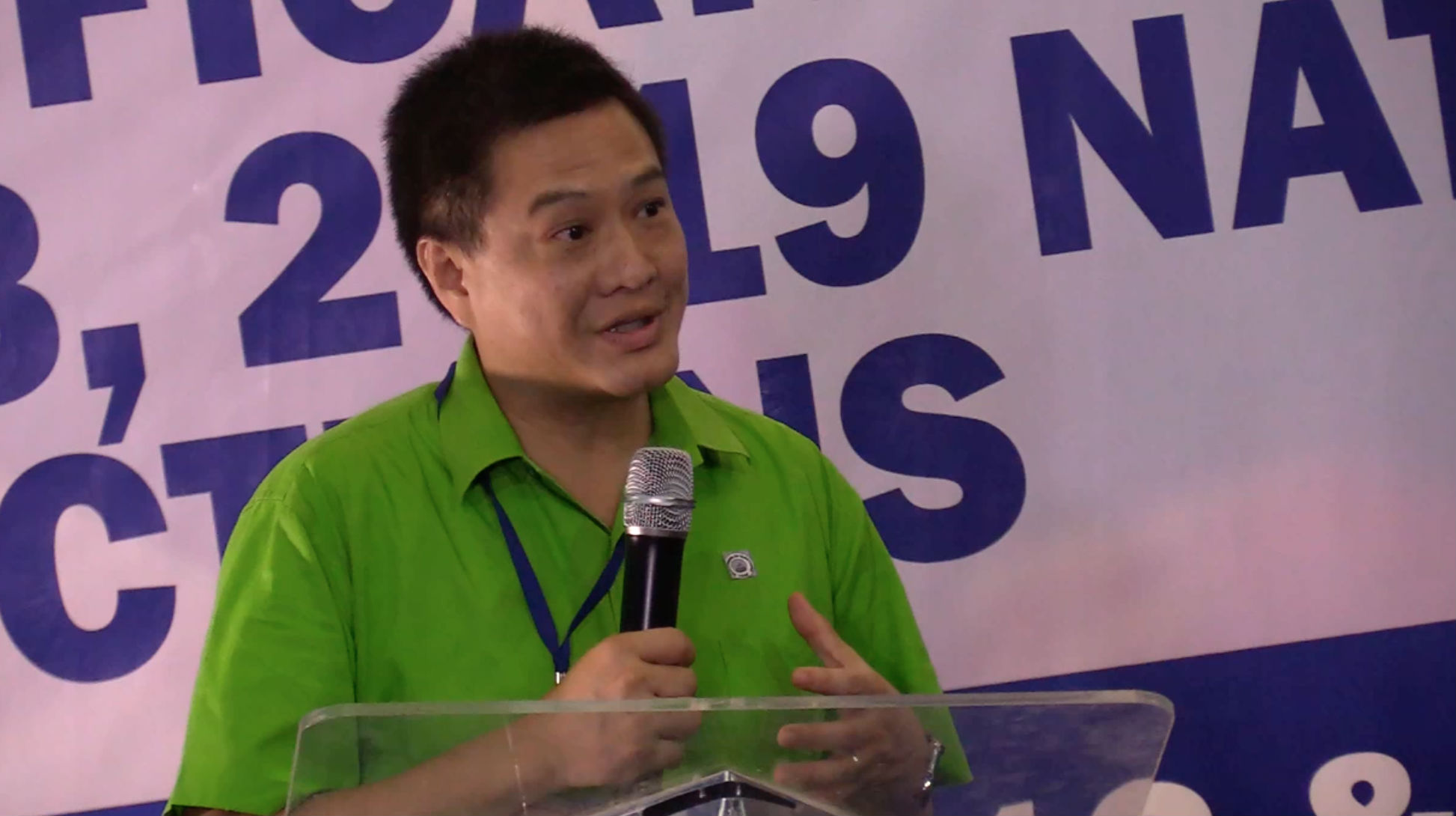
Erin Tañada. INQUIRER.NET PHOTO/CATHY MIRANDA
Why play Chinese checkers when we should be playing Sungka?
Using these two traditional games to explain geopolitics, Oposisyon Koalisyon (OK) senatorial candidate Erin Tañada expressed doubt on whether the country would win if it continues to give way to desires of China.
“The question foremost on the mind of every Pinoy with this visit from President Xi Jinping is, why are we playing Chinese checkers with the Chinese, when we should be playing Sungka?” Tañada said in a statement on Wednesday.
“We are playing the game they invented, so naturally we are at a disadvantage; nothing could be more obvious from these signed agreements,” he added.
The former Quezon congressman also questioned the benefits that the country stand to gain from the deals with China.
“What’s in it for the Pinoys? Chinese loans are more expensive, so that is not the benefit. Chinese grants for infrastructure projects are just vehicles for exporting Chinese labor and expanding the business of Chinese construction firms, so that is not it either,” Tañada explained.
“What is left, then? Is the benefit just Chinese money? And at what price?” he asked.
On the first day of Chinese President Xi Jingping’s state visit, he and President Rodrigo Duterte witnessed the signing of 29 bilateral agreements between Beijing and Manila.
One of the documents forged was on Cooperation on Oil and Gas Development. Other agreements signed Tuesday in Malacañang were on trade, basic education, and communication technology, among others.
READ: PH, China sign MOU on oil and gas development, 28 other deals
But details of the contract remain under wraps, as of this posting.
Earlier, Vice President Leni Robredo and Tañada’s fellow candidates at OK asked the Duterte administration to be transparent in its contracts with China, to ensure that the country would not be placed at a disadvantage.
READ: Robredo demands transparency on deals with China
READ: Oposisyon Koalisyon: PH at ‘disadvantage’ in China deals
“All I see from the agreements are successes for the Chinese—our issuing panda bonds, the Chinese industrial parks, the authority to operate for the ICBC (Industrial and Commercial Bank of China), the organization of the Renminbi-Peso Forex Trading market—the fruition of China’s plans to be our top trading partner, main importer of goods, and now biggest lender,” he noted.
“What I do not see is any real and clear benefit to the Filipino people,” he said. “And as for the MOU on oil and gas development, did it come with any concession at all from the Chinese as to our claims in the West Philippine Sea?”
Instead, he proposed that country’s top officials prioritize Filipino jobs and business before any foreign interests.
“I would have wanted the government to first leverage Pinoy jobs and businesses before inking more big deals with the Chinese […] What about the export of Chinese workers to our country when we have a surplus of labor, and hundreds of thousands of Pinoys go abroad to work every year?” he asked.
He also advised the Duterte administration to take a stand so that China would not be buoyed into thinking that the Philippines would just follow at its command.
“The trouble with the relationship that this administration has built with China is that it equates realpolitik with Filipino subservience,” Tañada said.
“We have key officials saying, ‘China is already in the West Philippine Sea, so there is nothing we can do about it,’ or ‘China’s BRI is already well under way in the rest of Asia, we might as well get on board,’ or ‘China will give us grants anyway, so we should take out loans with interest rates 1,100% higher than other loan sources’,” he added. /kga